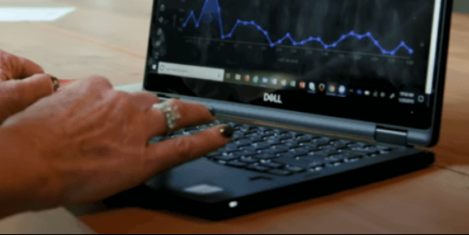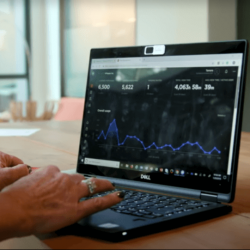To provide the best experiences, we use technologies like cookies to store and/or access device information. Consenting to these technologies will allow us to process data such as browsing behaviour or unique IDs on this site. Not consenting or withdrawing consent, may adversely affect certain features and functions.
The technical storage or access is strictly necessary for the legitimate purpose of enabling the use of a specific service explicitly requested by the subscriber or user, or for the sole purpose of carrying out the transmission of a communication over an electronic communications network.
The technical storage or access is necessary for the legitimate purpose of storing preferences that are not requested by the subscriber or user.
The technical storage or access that is used exclusively for statistical purposes.
The technical storage or access that is used exclusively for anonymous statistical purposes. Without a subpoena, voluntary compliance on the part of your Internet Service Provider, or additional records from a third party, information stored or retrieved for this purpose alone cannot usually be used to identify you.
The technical storage or access is required to create user profiles to send advertising, or to track the user on a website or across several websites for similar marketing purposes.
 Research by employee benefits provider Unum, claims 86 percent of UK employers surveyed are changing their approach to employee health and wellbeing in light of the current pandemic. Almost all employers surveyed (95 percent) say it has impacted their need to make people feel more protected, with many focusing their health and wellbeing strategies on preventative measures, like mental health advice and support. (more…)
Research by employee benefits provider Unum, claims 86 percent of UK employers surveyed are changing their approach to employee health and wellbeing in light of the current pandemic. Almost all employers surveyed (95 percent) say it has impacted their need to make people feel more protected, with many focusing their health and wellbeing strategies on preventative measures, like mental health advice and support. (more…)








 The repercussions of Covid-19 for the small business community have been particularly ruinous. Recent figures paint a worrying picture, revealing that approximately 76,300 SMEs in London alone ceased operations completely as a direct result of the pandemic, with lockdowns costing from £30,000 to £75,000 for one in ten small businesses. As the most vulnerable business segment in the current crisis, SMEs needed the biggest support and, by the end of April, had already received over £4 billion via the government’s
The repercussions of Covid-19 for the small business community have been particularly ruinous. Recent figures paint a worrying picture, revealing that approximately 76,300 SMEs in London alone ceased operations completely as a direct result of the pandemic, with lockdowns costing from £30,000 to £75,000 for one in ten small businesses. As the most vulnerable business segment in the current crisis, SMEs needed the biggest support and, by the end of April, had already received over £4 billion via the government’s 
 The construction of new offices in central London has declined by half (50 percent) in six months as developers and occupiers shift their focus to refurbishment, according to Deloitte Real Estate’s latest
The construction of new offices in central London has declined by half (50 percent) in six months as developers and occupiers shift their focus to refurbishment, according to Deloitte Real Estate’s latest 
 It has now been more than eight months since the government first advised people to work from home if possible, due to COVID-19. The shift to remote working happened suddenly in March and quickly became part of everyday life; in April 2020 alone,
It has now been more than eight months since the government first advised people to work from home if possible, due to COVID-19. The shift to remote working happened suddenly in March and quickly became part of everyday life; in April 2020 alone, 


 80 percent of companies say that an increased cybersecurity risk caused by human factors has posed a challenge during the COVID-19 pandemic, particularly in times of heightened stress. This is according to
80 percent of companies say that an increased cybersecurity risk caused by human factors has posed a challenge during the COVID-19 pandemic, particularly in times of heightened stress. This is according to 
 According to new research from
According to new research from 


 Over half (52 percent) of UK workers think we will see a “reverse brain drain” of talent migration away from big cities like London and Manchester towards regional areas as a result of COVID-19, according to latest research from the
Over half (52 percent) of UK workers think we will see a “reverse brain drain” of talent migration away from big cities like London and Manchester towards regional areas as a result of COVID-19, according to latest research from the 
 The
The 







December 11, 2020
Firms should be aware of the legal implications of employee monitoring
by James Castro-Edwards • Comment, Flexible working, Technology, Workplace